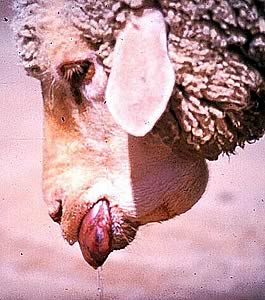 |
|||||||||
|
|||||||||||||||||||
|
|
Bluetongue disease confirmed in
Belgium and Germany The European Commission has been informed of confirmed outbreaks of Bluetongue in parts of Belgium and Germany, close to the border with the Netherlands.
In Belgium, the virus was confirmed on 11 holdings in sheep in the Liege province, while German authorities reported findings in cattle on 8 holdings and in sheep on 1 holding in the Aachen/Düren area of the region of North Rhein Westphalia . Further investigations and laboratory testing are currently being performed at the Community Reference Laboratory in Pirbright (UK), to identify the strain involved. Both countries have established 20km standstill zones around the infected farms, and have adapted the 100km protection zone and 150km surveillance zone that was put in place in response to the Dutch outbreak on Friday. The situation will be discussed by Member State veterinary experts in the Standing Committee on the Food Chain and Animal Health this afternoon, and the Commission will adopt a decision on the measures to be taken, in line with Directive 2000/75 on the control and eradication of bluetongue. Bluetongue is a non-contagious, insect-transmitted, viral disease which affects domestic and wild ruminants. It does not affect humans and there is no risk of the disease being contracted or spread through meat or milk. In Europe it is usually only found in parts of the southerly Mediterranean countries, but last week the first ever outbreak above the 50°N parallel was reported by the Dutch authorities. The Belgian and German outbreaks are both close to where Bluetongue was reported in the Netherlands and are located within the 150km radius surveillance zone that was established around the Dutch outbreak. Within 20km standstill zones that have now been set up around the infected farms, all ruminants must be kept inside at night, all movement of live animals on or off farms is prohibited, and the use of insecticide is compulsory in an effort to eradicate the Culicoides mites that carry the disease. In the protection and surveillance zones, strict controls must be carried out on all live animals and movement of live ruminants in or out of the zones is banned.
|
||||||||||||||||||

|
|
||||||||||||||||||
| home | agri-services | pedigree
pen | news | dairy | beef | machinery quota | property | organisations | site map |
|||||||||||||||||||

